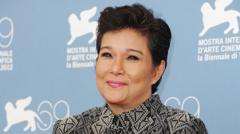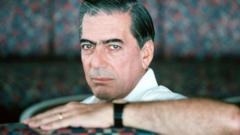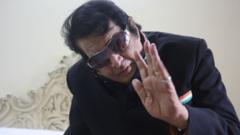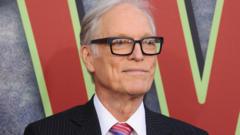Mario Vargas Llosa, the renowned Peruvian novelist and influential political thinker, has died at age 89, leaving behind a legacy of literary brilliance and critical commentary on Latin American society.
Mario Vargas Llosa: A Literary Giant and Political Maverick Passes Away

Mario Vargas Llosa: A Literary Giant and Political Maverick Passes Away
Peru mourns the loss of its Nobel laureate who transformed personal experiences into universally resonant narratives.
Mario Vargas Llosa, an eminent Peruvian author celebrated for his profound contributions to literature and incisive political discourse, has passed away in Lima at the age of 89. His family announced the news through a social media statement on Sunday.
Vargas Llosa, who won the Nobel Prize in Literature in 2010, first rose to prominence as a young author with an unflinching depiction of societal corruption and moral decay in Peru. He was a key figure in the literary “boom generation” of the 1960s, alongside other illustrious writers like Gabriel García Márquez and Julio Cortázar. His works often blended gritty realism with elements of eroticism, challenging societal norms and providing deep insights into the quest for individual freedom throughout Latin America.
His literary career began with his debut novel “The Time of the Hero,” a scathing portrayal of military life inspired by his own experiences at the Leoncio Prado Military Academy in Lima. Published in 1963, the book faced vehement backlash from military officials who accused Vargas Llosa of undermining the military with foreign funding, which, paradoxically, propelled its initial success.
In addition to fiction, Vargas Llosa was a vocal critic of political regimes, particularly through his discontent with Fidel Castro's oppressive practices in Cuba. Unlike many of his contemporaries who embraced magical realism, Vargas Llosa remained skeptical and ultimately distanced himself from the leftist ideologies that once dominated the literary landscape in Latin America. His multifaceted career as a novelist and an essayist has established him as one of the foremost voices in contemporary literature and political thought.
As the world reflects on his profound impact, the literary community and political sphere alike will continue to feel the reverberations of his work, shaping conversations long after his passing.



















